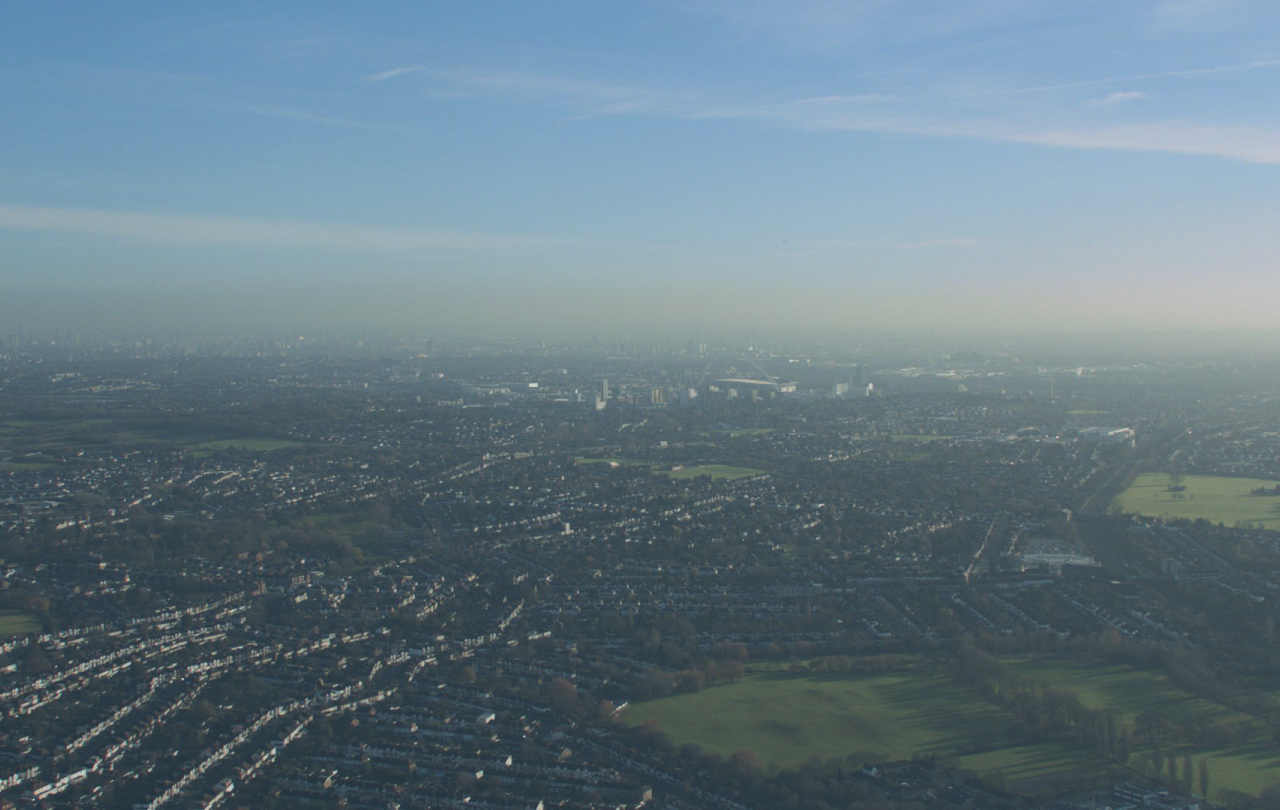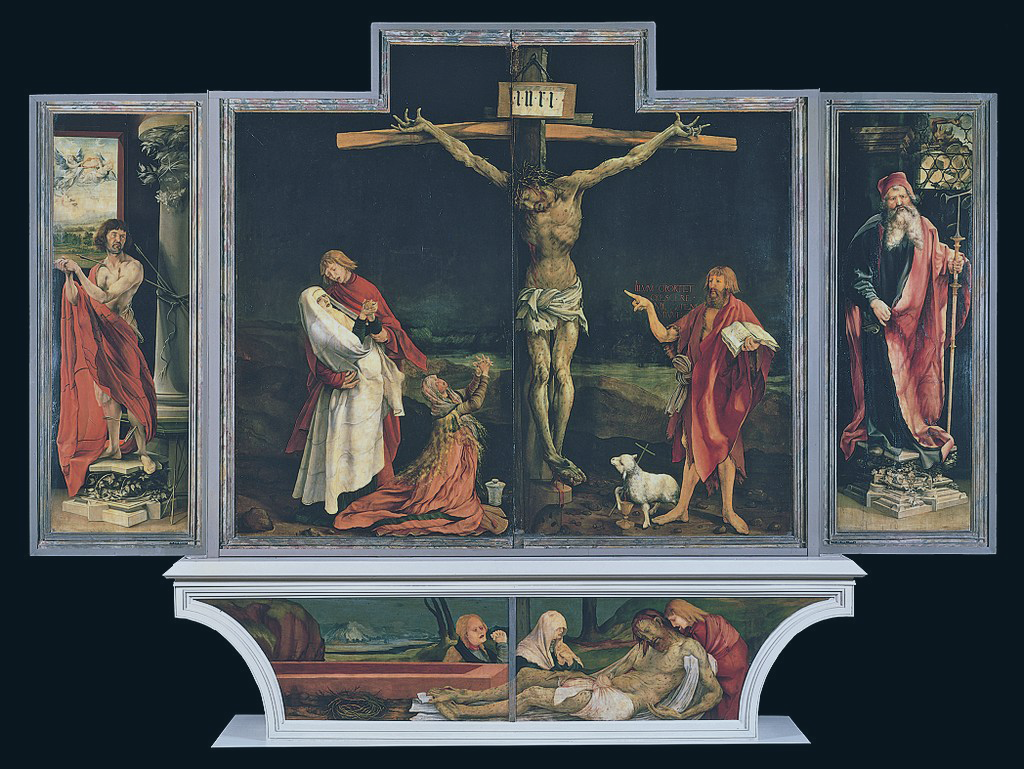Steve McQueen, just like Matthias Grünewald, wants us to look hard at the reality of what we have done - innocent life lost in the most horrific way. The altarpiece focuses on the intense suffering of Christ, the stretched sinews, the blood pouring from the wounds, the agony of those helplessly watching on. Just like this film that keeps your eyes fixed on the shattered shell of a building, the painting doesn’t let your eyes stray from the grim reality.
Yet there is a difference. Just faintly in the dark distance of Grünewald’s painting are the glimmers of dawn. On the horizon, the sky lightens, just a little. It is of course a reference to Resurrection, just around the corner. It doesn’t annul the pain, doesn’t offer easy, facile optimism, pretending that the awfulness doesn’t matter. Yet it makes contemplating it bearable. It allows you to focus on the revulsion, yet makes it endurable by offering the hope of Resurrection. And as Christian thinkers and pray-ers have insisted over the years, you only get to Resurrection through death, not by avoiding it.
At the time of the fire, I remember doing numerous media interviews with news outlets from across the world, with journalists hungry for some words to satisfy the global fascination with this tragedy. What could I say? What could possibly make sense of such a thing? I resolved that in every interview I would try to acknowledge the dreadfulness of what had happened, but also to strike a note of hope - that that despite what had happened, lives could be rebuilt, a community could find healing, then there was a road out of pain, one day, to peace – all because I am a Christian, and therefore have to believe that resurrection follows death.
Steve McQueen's brief film is compulsive watching. If you get a chance, you really should see it as something that brings home the horror of Grenfell more than anything I have seen. It is Grenfell’s Good Friday. Grenfell’s altarpiece. Watching it with Christian eyes, however, I kept looking for the glimmers of dawn.
Grenfell has been subject to a huge amount of commentary since the fire. There are those on the left who see it as a monument to corporate greed and capitalist rapaciousness. They demand Justice for Grenfell, which for many, means locking up or punishing the guilty. There are those on the right who see it a simply a dreadful accident that could have happened anywhere. One side calls it a crime. The other calls it a tragedy. Which was it?
The Left is perhaps rightly consumed with anger, demanding justice, legal convictions as resolution. Many on the Right look for a while, yet eventually avert their gaze, thinking it of it as one of those things, just an awful tragedy. I remember a Council official saying to me: “Well, one day, we just have to move on from Grenfell.”
What happens beyond lament? It is one thing to grieve those who died. It’s also something else to critique the failures that lead to it. Issuing prison sentences to the guilty may satisfy the desire for justice, but doesn't in itself bring about a new, hopeful, common life that renders simply unimaginable the pattern of moral compromise and sheer carelessness for the safety of others that led to Grenfell. On the other hand, simply consigning it to the category of awful accidents doesn't take seriously the grievous sins that led to the fire, and fails to give due recognition to the suffering of those who died.
Neither left nor right can offer us a sure way forward. That is where we are short of vision at the moment. An event like Grenfell easily falls off the radar of public attention because we don't want to look at it. Any maybe that is because we're not sure it will ever get any better. We need a way to keep looking at something painful until it is healed. That is the point of penitence - to go back to painful places in our lives to find healing. Yet you can only really do that if you believe healing can be found, that death ends in life, not the other way round.
The Christian story that holds together death and resurrection, Good Friday and Easter Sunday enables us to look at death and tragedy and horror full in the face as this film so eloquently enables us to do. It enables penitence to be hopeful, not hopeless. Yet, it also enables us to bear it, because alongside it, it says that there is a reality beyond both crime and tragedy, that is not just retributive justice but a deep underlying trajectory of the world that is headed for life not death.
Of course, the Resurrection is not a political solution. It doesn’t convict the guilty or dictate future housing policy, important as those are. But it points us to the deeper reality - that perhaps what we need today is not so much political but spiritual renewal. We need a deeper vision of life and death that gives us a reason to hope, that offers a future. We need a bigger story, a story that kindles hopefulness, that can stir hopeless hearts and the glimmers of dawn, even in the darkness of a world filled with so much pain.







